Note that the information about Yapily and Plaid found in this article was taken from their respective websites on 5 March 2024. This information is subject to change.
Open banking is shaking up the financial world, offering a new way to think about transaction data and payments. Yapily and Plaid are the key providers in this space, each with a unique set of tools and features.
Here, we compare Yapily and Plaid, evaluating their product range and prices to help you choose an open banking provider that meets your business needs.
Yapily vs Plaid: Coverage & Business Focus
Plaid was founded in 2012 by Zach Perret and William Hockey in San Francisco. Plaid operates in the US, Canada, the UK and 15 other European nations, with Austria and Finland “coming soon” into the coverage.
Yapily, on the other hand, is a younger player, established in London in 2017 by Stefano Vaccino. It operates in 19 European countries, connecting to thousands of banks and covering a significant part of Europe.
Plaid primarily serves fintechs and financial service providers, enabling personal finance apps, digital lending platforms, and wealth management services to access bank data.
Yapily, on the other hand, focuses on enterprise-level solutions, catering to neobank, payment providers, FX, remittance and accounting companies. With a strong emphasis on open banking payments and deep API integrations, Yapily is well-suited for businesses needing robust European banking connectivity.
Yapily vs Plaid for Online Payments
| Yapily | Plaid | |
| Payment Initiation | Yes | Yes |
| VRPs | Sweeping & non-sweeping (select banks) in beta | Sweeping only |
| Bulk Payments | Yes, in beta | No |
| Direct Debits | No | Yes |
| Payouts | Yes, in beta | Yes, in beta in UK/EU |
| Reconciliation & Refunds | Yes, in beta | Yes |
Payment Initiation
Yapily Payment APIs offers instant account-to-account (A2A) payment processing across the UK and Europe through application programming interfaces (API) integration. However, you must be licensed as a Payment Initiation Service Provider (PISP) under PSD2 to access this service.
Yapily Connect can grant access to Yapily’s open banking data and payments without the need to obtain a Third-Party Provider (TPP) license.
Yapily Bulk Payments enables clients to initiate A2A payments in bulk across the UK and Germany. A bulk payment is a group of payments paid to multiple recipients in a single transaction.
Plaid for Payment Initiation, too, offers a payment product that “enables your users to make real-time payments without manually entering their account number and sort code, or leaving your app”. It’s available in the UK and Europe.
The provider offers two ways to integrate Plaid for Payment Initiation: using Classic Link and Modula Link. The latter allows more customisation to the end-to-end experience.
VRPs
Yapily VRPs are currently in beta across the UK. This means Yapily released the software for users to try under real conditions.
Variable Recurring Payments (VRPs) enable transactions of varying amounts at routine intervals without the need for re-authorisation. Sweeping (me-to-me) VRPs are available through Yapily with select UK banks, while non-sweeping commercial VRPs are available as a pilot and restricted to the merchants enabled by the NatWest bank.
Note that non-sweeping VRPs are not currently mandated by the UK’s Open Banking Limited (formerly OBIE).
Plaid VRPs & Standing Orders: Both sweeping VRPs and standing orders are available for UK Plaid clients. A standing order is a recurring payment of a fixed amount.
Direct Debits, Payouts, Other Features
Plaid Auth: allows the set up of direct debits and payouts in the UK and Europe. Businesses can instantly retrieve account information to set up online payments via ACH and more. Auth allows to request a user's checking or savings account information, making it easy to initiate credits or debits.
Plaid Virtual Account API allows to collect domestic payments, initiate payouts and refunds, and streamline reconciliation processes. The service is only available in the UK and Europe. Virtual accounts can be layered on top of Payment Initiation functionality.
Plaid Signal evaluates the likelihood of a specific ACH transaction resulting in a return. It’s built on machine-learning (ML) technology.
For Plaid’s US clients, the provider has Plaid Transfer, a multi-rail payment platform that offers tools to send and manage ACH, RTP and FedNow transactions.
Meanwhile, Yapily’s Virtual Accounts can be used within its PIS flow. This product is currently in the beta stage. It provides users with features such as receipt of funds, reconciliation, funds handling and settlement.
Yapily versus Plaid for Open Banking Data
| Yapily | Plaid | |
| Transaction Data | Yes | Yes |
| Account Data | Yes | Yes |
| Statements | No | Yes, in beta |
| Liabilities & Investments | No | Yes (US only) |
| Data Enrichment | Yes | Yes |
| Account Validation | Yes | Yes |
| Identity Verification | Yes | Yes |
| Asset Verification | No | Yes |
| Income Verification | No | Yes (US and UK only) |
Open Banking Data
Yapily Data allows users to access Account Information Services (AIS) for banks across the UK and Europe. Using Yapily’s Data API, clients can access their customers’ account balances, transaction history, and account details, whether it’s a consumer, business or corporate account. Businesses must be licensed as an Account Information Service Provider (AISP) to access the service. If they aren’t, they can use Yapily Connect.
Plaid Transactions allows to retrieve transaction history for deposit, credit and student loan accounts as part of Plaid’s open banking offering.
Plaid Transaction+ (currently in beta) offers insights based on customer transaction history across all their linked and permissioned accounts.
Plaid Balance retrieves real-time account balance information. Balance is available exclusively in combination with other Plaid products.
Plaid Statements (currently in beta) allows to retrieve a bank-branded PDF copy of a customer’s bank statement.
Plaid Liabilities & Investments: Plaid’s US clients can also access data for student loans, mortgages, and credit cards via Plaid Liabilities; and holdings and transactions from investment accounts via Plaid Investments.
Data Enrichment
Yapily Data Plus provides additional data enrichment to supplement standard Yapily Data. Categorisation, transaction group analysis, and balance prediction are also available through Data Plus, yet they are currently in beta version.
Plaid Enrich gives access to transaction data generated by clients’ own banking products or retrieved from other non-Plaid sources. According to the provider, this data can be used to build new apps and features.
Verification & KYC
Yapily Validate enables its clients to instantly confirm customer details and account ownership across the UK and Europe. This can be used to verify basic account information, and for identity verification.
Plaid Asset Verification: Assets data is used to determine whether a user has enough assets to qualify for a loan.
Plaid Identity Verification: Plaid Identity Verification lets clients verify the identity of their customers using different verification methods. This includes identification documents, phone numbers, names, dates of birth, ID numbers, addresses, and more.
Identity Verification also integrates directly with Plaid Monitor for an end-to-end verification and Know Your Client (KYC) solution. Monitor detects if customers are on government watchlists, screening users against a number of sanction and Politically-Exposed Persons (PEP) lists.
Plaid Income Verification is available in the US and UK only, and it helps to verify anyone's income and employment. Depending on the product, a client can request information such as pay stub data, income streams, and historical income.
Plaid vs Yapily Pricing & Fee Structure
Yapily doesn’t reveal their pricing structure or plans. On its website, the provider states that “whether you’re a disruptive start-up or an established enterprise, our pricing options scale with your growth”. This suggests that there are tailored plans for companies of different types and sizes.
Plaid also offers customisable pricing, depending on the client and their goals. There are three pricing plans:
- Pay as You Go: No minimum spend or commitment.
- Growth: Minimum spend of $100/month with a three-month commitment. Lower per-use costs than Pay-as-you-go plans.
- Custom (Scale): Minimum spend of typically $500/month and annual commitment, but lower per-use costs than Pay-as-you or Growth plans. Minimums can apply across the entire Plaid account or by-product.
For customers based in Europe, only Custom plans are offered. In addition, Payment Initiation, Signal, and Transfer are currently offered only via Custom plans.
Alternatives to Yapily and Plaid: Noda
Noda is designed for online merchants who need a cost-effective, seamless solution for accepting direct bank payments. With easy-to-integrate checkout options, embedded or custom payments, payment links, and QR codes, we enable businesses to receive instant payments from over 2,000 banks across the UK, EU, Canada, and Brazil—along with support for payouts and refunds.
We provide merchant accounts and multi-currency support, helping globally focused businesses simplify open banking payments across multiple markets. Beyond payment processing, our platform leverages AI-driven financial analytics to optimize transactions and deliver deeper business insights.
Contact us to discover how Noda can streamline your payments and support your business growth—we’d be happy to explore your specific needs.
FAQs
Is Yapily or Plaid better?
Yapily and Plaid each have their strengths, depending on your business requirements. Yapily is strong for payments, while Plaid offers broader data services. Yapily covers most of Europe, while Plaid supports the US, Canada, and European countries.
What are the differences between Yapily and Plaid?
Yapily excels in payments, offering A2A and bulk payment options. Plaid provides a broader array of payment services and data tools, making it more versatile for various financial applications. Plus, they differ in geography. While Yapily works in most of Europe, Plaid supports the US, Canada, and European countries.
Latest from Noda

Top Payment Methods in Austria: How to Accept Payments Efficiently in 2026

GoCardless Review 2026: What Merchants Need to Know

AIS vs PIS in Open Banking: What’s the Difference & When to Use Each



